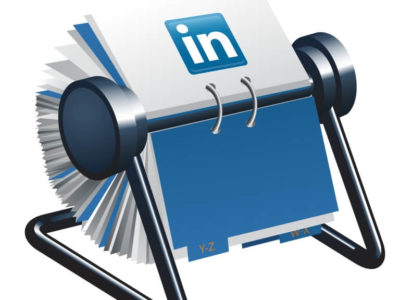Going out and getting a job is a different hurdle than it was a few years ago. It used to be that you would arrive to your interview resume in-hand, maybe even a few business cards in your pockets. But now that we live online, professional materials are being phased out for more accessible alternatives. But LinkedIn is being welcomed like BluRay was after DVDs — it’s taking a while to stick. But having a LinkedIn profile is more important than ever before.
“I've only had a LinkedIn account for 2 years, but I've been working for over 20 years. Prior to joining LinkedIn I did my networking the old fashioned way, and I still prefer sharing a cup of coffee to sending an instant message,” said Nancy Tanneberg, a Career and Alumni Success advisor from the Savannah College of Art and Design. “More and more employers are using LinkedIn for recruiting. Most will use a variety of recruitment methods, but some recruiters rely heavily on LinkedIn. They will use it to post jobs, research potential employees, and communicate with candidates.”

LinkedIn is more of a professional tool than a social media network. And because it is being approached as the latter, people are apprehensive about what LinkedIn does, how it should be used and how it shouldn’t.
“On LinkedIn, you can endorse someone’s professional skills, write a recommendation, see how you are connected to another person or company, research job openings, join professional groups within your industry, share an article that promotes your work, etc.,” added Tanneberg. “I don’t think LinkedIn should be used to grow your network without proper introductions. Professional etiquette is important and how you act online or in-person will ultimately reflect on your reputation.”
Benjamin Rodriguez recently graduated from SCAD with a degree in visual effects. From desk jobs to more creative fields, LinkedIn has members for just about every field or profession.
“I found a lot of artists to make connections with. I follow a lot of groups for new industry techniques and what professionals are doing as far as work to match my work to theirs,” Rodriguez said. “Demo reels and critiques are also a good way to see the competition and get feedback on your work from professionals and aspiring artists. Some companies post hiring positions on their pages and it’s just a great resource to keep up with on a professional level for any industry.”
With that said, keep in mind that Facebook friends are not the same as LinkedIn connections. I would be lying if I said I knew each one of my Facebook friends. Some people I spoke to once at a party, a few I have never even met in person. But on LinkedIn, these connections are not for socializing or making small talk, they are there to help you — and you are there to help them. Unlike with Facebook friends, your number of connections impresses nobody. What does matter is who you are connected with.
LinkedIn may not be the only way college grads are finding jobs and keeping hold of valuable connections, but it is still progressive and an important part of anyone’s professional persona. If you don’t already have a LinkedIn profile, maybe it’s time you put on your grown-up pants and sign up.



















